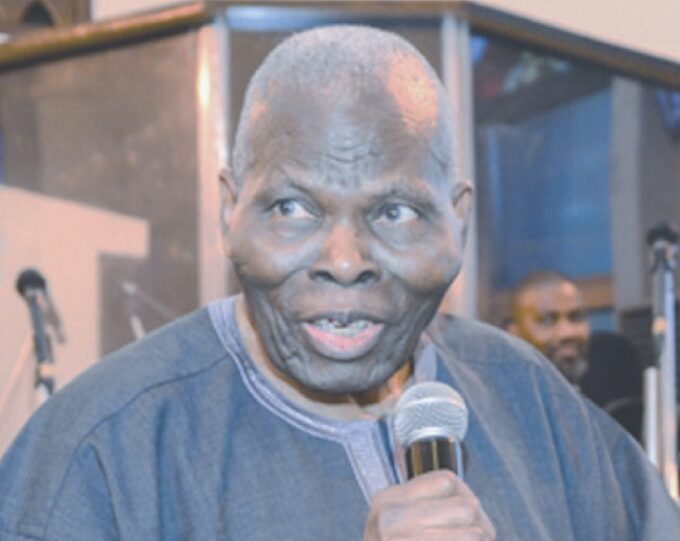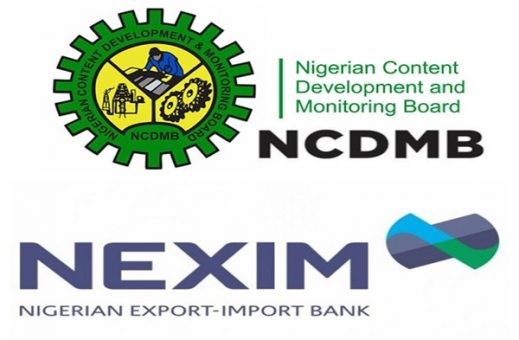By Henry Uche
The National Insurance Commission (NAICOM) is clinking glasses and celebrating the new Nigerian Insurance Industry Reform Act (NIIRA 2025), describing it as a game-changer loaded with transformative additives designed to take the insurance sector and economy at large to the next level.
But on the other side of the aisle, stakeholders and Nigerians are cautiously optimistic, insisting there is no need for premature ceremonies as the results should speak for themselves.
Agreeably, there are genuine reasons for that skepticism because decades of efforts to increase insurance penetration beyond 1% has remained a mirage.
In fact, for most operators, brokers, agents, analysts and industry watchers, NIIRA 2025 is no magic wand for a sector still struggling to find its footing in a nation of over 200 million people. Insurance in Nigeria has long been relegated to the background, weighed down by decades of public contempt, distrust and deep-seated reservations.
Yet for the regulator, the National Insurance Commission (NAICOM), under the leadership of Mr. Olusegun Omosehin, NIIRA 2025 represents far more than just another industry initiative. To the Commissioner of Insurance, it is a golden opportunity to rewrite the sector’s story and reposition it as a catalyst for Nigeria’s economic growth. For him, the stakes are clear: it is either transformative success by the end of his tenure, or nothing at all.
When he assumed office in May 2024, Omosehin moved swiftly to etch his name in the sands of time by reawakening national consciousness about the place of insurance in Nigeria. He reached out not only to individuals and corporate bodies but also to federal ministries, departments, and agencies, determined to bring everyone on board as he pursued the mandate given to him by President Bola Tinubu, to position the insurance sector as a key contributor to the federal government’s $1 trillion economy projection for 2030.
Stakeholder engagement
Even before the formal signing of NIIRA on July 31, the Commissioner had begun extensive engagements with institutions and corporate organisations as far back as January. That drive has not relented. He continues to court critical stakeholders, urging them to align with both the president’s long-term vision and NAICOM’s mission to reposition insurance as a central pillar of Nigeria’s economic transformation.
Well ahead of schedule this year, the National Insurance Commission (NAICOM) had already begun drafting and engaging critical government institutions, including the Federal Fire Service, the Nigeria Police Force, the Federal Road Safety Corps (FRSC), the Nigerian Civil Aviation Authority (NCAA), and the Nigerian Electricity Management Services Agency (NEMSA). Each was urged to play its statutory role in strengthening collaboration aimed at pulling the insurance sector out of stagnation.
Other agencies brought into the fold include the Office of the Head of the Civil Service of the Federation (OHCSF), the Corporate Affairs Commission (CAC), the Securities and Exchange Commission (SEC), and the Nigerian Economic Summit Group (NESG). The purpose of these engagements was clear: to use insurance reforms as a driver of economic growth.
On the international front, NAICOM welcomed delegations from the World Bank, the Malaysian High Commission, the Ghana Cargo Technical Committee, and the Central Bank of The Gambia in strategic knowledge-sharing sessions designed to enrich Nigeria’s insurance landscape with global best practices.
Determined to position the industry alongside financial heavyweights, NAICOM also issued new guidelines for InsurTech operations in Nigeria and entered discussions with the FinTech Association of Nigeria to accelerate technology adoption in insurance.
Speaking at the 2025 Insurance Professionals Forum organized by the Chartered Insurance Institute of Nigeria (CIIN), the Commissioner of Insurance described the Nigerian Insurance Industry Reform Act 2025, signed into law by President Bola Tinubu, as “a pivotal milestone in Nigeria’s journey toward sustainable growth.”
The legislation, it was believed, consolidates various fragmented insurance laws into a single, comprehensive legal framework, making it a landmark law which has come to streamline compliance, eliminates inconsistencies for insurance providers, among other benefits.
With the theme: ‘Nurturing the Insurance Industry for Sustainable Growth’, the NAICOM Chief maintained that the legislation gives room for adaptive regulation which establishes foundational principles, rather than rigid prescriptions, allowing for more adaptive regulation that evolves with market conditions and innovations.
Early gains
For the NAICOM CEO, the legislation has introduced a Risk-Based Capital (RBC) framework, which fundamentally transforms how an insurer’s financial adequacy is assessed.
“NIIRA 2025 strengthens the capital base of insurance institutions and replaces previous one-size-fits-all requirements, evaluating capital needs based on each insurer’s specific risk profile, business model, and product offerings.
“Through the enactment of NIIRA 2025, we have been mandated to intensify the enforcement of compulsory insurance compliance and strengthen the protection of policyholders through the newly introduced Policyholder Protection Fund. The Act also promotes digital transformation, supports microinsurance and financial inclusion and aligns our regulatory standards with global best practices.
“This reform is not just regulatory, it is transformational. It lays the foundation for a more resilient, transparent, and competitive insurance ecosystem. It enhances investor confidence, encourages innovation, and positions our industry as a strategic contributor to Nigeria’s broader economic aspirations, including the vision of a $1trillion economy.
“Nigeria Insurance Industry Reform Act (NIIRA) 2025, is a golden opportunity for the insurance industry to reposition itself and emerge from the challenges that have hindered its growth over the years”.
To all stakeholders, he charged them to promote excellence, professional capacity, and innovation as they embark on a transformative journey to revitalize the sector saying: “We must strive to rebuild trust and confidence in our industry, going above and beyond to meet the expectations of our stakeholders, customers’ experience and increasing our contribution to the nation’s economic development.
“As we operate in an era characterised by rapid technological advancements, evolving economic landscapes, and heightened expectations for adaptability and resilience, the need to develop a robust, sustainable, and inclusive insurance industry has become increasingly paramount”
He called for professional capacity building through continuing education, ethical leadership, competency development and knowledge sharing. “As an agency of government, the Commission is dedicated to creating an environment that promotes stability, innovation, and inclusivity, empowering the insurance industry to thrive and contribute to the nation’s economic growth and development.
“By prioritising professional capacity building, we can ensure that our industry remains agile, adaptable, and equipped to navigate the complexities of a rapidly changing landscape. Let us seize this opportunity to enhance our collective capabilities and shape the future of our industry”
Pointing at Al-driven solutions, blockchain technology, data analytics, digital channels, among others, he said: “The insurance industry is undergoing a profound transformation driven by technological advancements. Digital innovations are redefining the way insurance products are designed, distributed and consumed.
“To remain competitive, we must harness the power of digital technologies to: enhance operational efficiency and reduce costs, improve customer experience and engagement, increase transparency and trust through data-driven decision-making.
“By embracing digital transformation and innovation, we can unlock new growth opportunities, improve risk management, and deliver more personalised and responsive insurance solutions that meet the evolving needs of our customers. Let us leverage technology to drive industry progress and shape a more sustainable and customer-centric future”
On strengthening regulation and financial inclusion, NAICOM’s CEO said the Commission remains committed to fostering a robust regulatory environment that promotes stability, protects policyholders, encourages healthy competition, and would continue to work with stakeholders to refine policies that support growth while ensuring compliance and accountability.
“Millions of Nigerians remain outside the formal insurance net. Sustainable growth demands that we reach underserved populations through tailored products, simplified processes, and strategic partnerships. Microinsurance, parametric solutions and mobile platforms offer promising pathways. While we embark on robust regulation, we need tailored products and create digital access”
On Environmental, Social, and Governance (ESG) integration, he added that as the global landscape increasingly prioritises sustainability, Nigeria’s insurance industry must equally integrate ESG principles proactively into its operations, by developing climate risk models to take informed underwriting decisions and mitigate environmental impacts and such others.
“By embracing ESG integration, we can contribute to a more resilient and responsible future, ultimately enhancing the industry’s reputation, trust, and long-term viability. As a key player in the global economy, our industry has a critical role to play in driving sustainable development and supporting the transition to a low-carbon economy”.
Call to action
Omosehin, who was former Chairman of Nigerian Insurers Association (NIA), called on professionals in the industry to embrace the new era with readiness and resolve. He noted that “the success of the new reform depends on our collective commitment to implementation, compliance, and continuous improvement.
“We must conduct a nuanced analysis of potential growth areas, leveraging data-driven insights to inform our decisions. We need to explore innovative business models and partnerships that can drive sustainable growth and enhance industry resilience, as well as forge strategic alliances that foster collaboration, knowledge-sharing, and collective problem-solving.
“I urge every professional to embrace the principles of change leadership, excellence, and trust-building. Let us collectively strive to create an insurance industry that is not only financially sustainable, but also socially responsible, serving the needs of people, supporting economic development, and demonstrating enduring values.
By working together, we can build an industry that is purposeful, resilient, and poised for long-term success”.
Meanwhile, a vox pop conducted in the streets of most cities in Nigeria revealed that many Nigerians are becoming aware of the relevance of insurance to individual life, businesses and the national economy, especially – third party motor and property insurance.
But with the NIIRA 2025 in place, they have called on the regulator and operators to walk the talk quickly and change the ugly narrative of one percent penetration which has relegated the sector for too long.
“The former commissioner, Mr. Olorundare Thomas Sunday achieved a N1.003 trillion in annual premium income by the end of the fourth quarter of 2023, which was the Commission’s long-standing market dream goal. His tenure at the NAICOM also saw the creation of a conducive environment for industry growth, the automation of the Commission’s operations, and efforts to address outstanding claims. So, for the new sheriff in town, we want him to break the 1% penetration jinx and achieve greater things. Operators and other stakeholders should support him to lift the sector out of doldrums” they challenged.


















Leave a comment